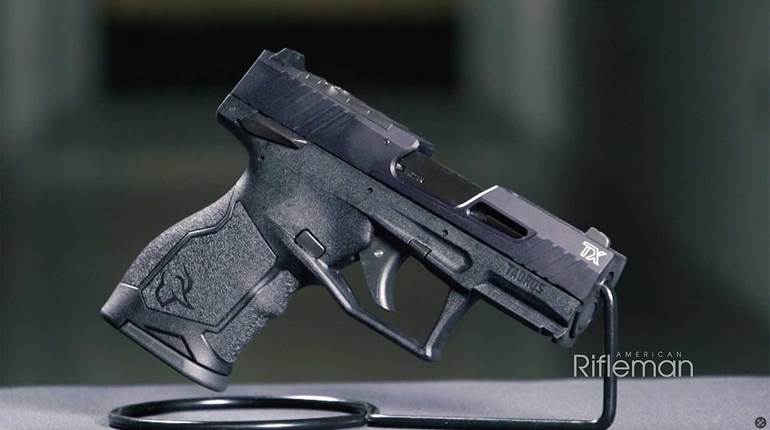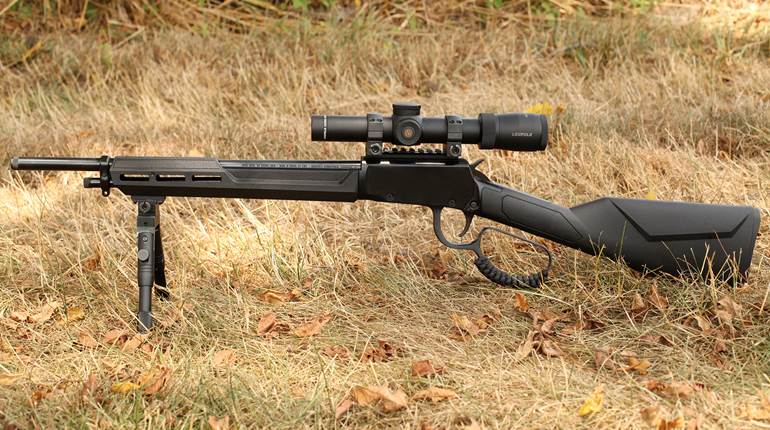
Unchecked moisture can cause rust on guns. The firearm industry has a host of products designed to ensure your collection does not fall victim while in the safe, and they work. I know, because I am testing a variety of them. They do not take 100 percent of the humidity out, however, because wood stocks exposed to little or no moisture for extended periods have a tendency to become expensive toothpicks.
Ammunition and moisture of any kind, on the other hand, do not play well together. That’s one of the reasons so called “Spam Cans”—cartridges shipped from the factory in waterproof apocalypse-defying containers—are so popular with preppers. The other reason, though, is because nosey neighbors don’t call the authorities quite as fast when faced with the prospect of 200 canned meats next door, versus their cartridge count of 48,000 M2 ball rounds.
Not long ago MTM Case-Gard sent me a Survivor Ammo Can. It’s a great design, polymer reinforcement on the sides, airtight seal, desiccant and separate “shield” atop to prevent damage during post-apocalyptic unearthing. But, I couldn’t see much use in burying 500 .223 Rem. cartridges trapped in 60-percent humidity with an air dryer I didn’t know anything about.
When I searched for a powerful, civilian-legal, budget-friendly desiccant that wouldn’t poison the ground water or peel my skin, I ran across the W.A. Hammond Drierite Co. in Ohio. I purchased one pound of 4 mesh and another of 20-40 mesh (about $25, depending on location and resulting shipping charges).
The experiments began upon its arrival. One ounce of 4 mesh (about the size of small pebbles) went in the ammo can. Temperature was 76 degrees and the hygrometer accompanying it indicated 53-percent humidity. The can has an O-ring and I tightened down all the screws to make the seal airtight. Ninety-six hours later, I reopened the can and the hygrometer was pegged at 10 percent. I thought it was broken, but it slowly moved back up to more than 50 percent. One ounce is not very much.
I put the regular Drierite outside to allow it to fully saturate for a few hours then followed the company’s regeneration instructions—two hours in an oven at 450 degrees. Once cool enough, I put it back into the ammo can and sealed it. Starting humidity in this case was 56 percent. The needle was back at the 10-percent line after 96 hours, the lowest the analog hygrometer can go. I was so skeptical I sealed the can and meter with nothing inside for four days. The humidity remained the same.
Joseph Hammond contacted me when I posed a series of questions by e-mail. The company, established in the 1930s, is still family owned—his mother and uncle are currently at the helm. He’s the gun enthusiast in the family so he was eager to help.
He quickly reassured me I hadn’t been exposed to any carcinogen, despite the fact the company specializes in providing desiccant for industrial and laboratory purposes. “Much of it is used for keeping large liquid storage tanks free of moisture,” he wrote back. “Bio-diesel and ethanol storage are a growing market for us. It is manufactured from gypsum rock, a naturally occurring mineral.
“I’m far from an expert when it comes to dealing with wood stocks, but I have had no issues in my 24-gun safe that houses a few old military bolt actions, shotguns, hunting rifles, etc. I use about two pounds of regular 6 mesh. The catch to all this that most gun cases do not seal up air tight and opening/closing the door lets in more humid air…However, I would not recommend sealing up your ’03 Springfield with 10 pounds of Drierite. The metal would never rust, but I’d say the stock would shrink and probably split pretty quickly.”
Indicating Drierite (which turns a different color when it’s fully saturated) can be corrosive to gun parts, so he doesn’t recommend that particular product for firearm enthusiasts. “Regular Drierite (the white kind) is non-corrosive and will not harm a gun’s finish or react with any metal parts in any way,” he explained. “Although, it can be slightly dusty if it is shaken up or vibrated.”
Then he brought up the experiment’s Holy Grail. “Keep ammo in an airtight container with Drierite and it will theoretically last forever,” he wrote. I’m not sure ammunition companies will agree with that statement, although there’s little doubt this natural product will prolong its shelf life.




































